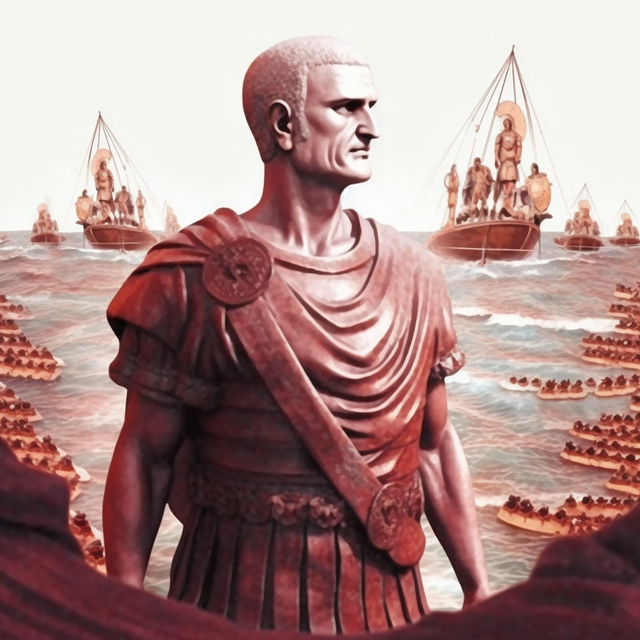
Gaius Duilius
Gaius Duilius was a Roman politician and naval commander who lived during the third century BC. He is best known for his role in the First Punic War, during which he commanded the Roman navy in a number of key battles against the Carthaginians.
Early Life and Career
Gaius Duilius was born into a prominent patrician family in Rome in the early third century BC. Little is known about his early life or career, but it is likely that he received a formal education and was trained in the art of war.
Duilius first came to prominence in 260 BC, when he was elected consul and given command of the Roman navy. At the time, the Romans were engaged in a bitter conflict with the Carthaginians over control of the island of Sicily, and Duilius was tasked with leading the naval campaign.
The Battle of Mylae
Duilius quickly proved himself to be a skilled commander, and in 260 BC he won a decisive victory over the Carthaginians at the Battle of Mylae. This battle was the first major naval engagement of the First Punic War and saw the Romans make use of a new tactic: the corvus.
The corvus was a boarding bridge that was fitted to the front of Roman warships. When two ships came alongside each other, the corvus would be dropped onto the enemy vessel, allowing Roman soldiers to board and engage in hand-to-hand combat.
The use of the corvus proved to be highly effective, and the Romans were able to capture a number of Carthaginian ships. This victory marked a turning point in the war and gave the Romans a significant advantage in the naval campaign.
Other Victories
Following the Battle of Mylae, Duilius went on to win a number of other important victories over the Carthaginians. He captured the important city of Lipara and defeated a Carthaginian fleet at the Battle of Sulci in Sardinia.
Duilius was also responsible for a number of significant reforms within the Roman navy. He standardized the design of Roman warships, making them more efficient and easier to maneuver. He also introduced a new system of training for Roman sailors, which helped to improve their skills and effectiveness in battle.
Later Life
After his successes in the First Punic War, Duilius was awarded a triumph, a grand public parade in Rome in honor of his victories. He was also given a number of other honors, including the right to wear a special kind of toga reserved for those who had triumphed in battle.
Despite his successes, Duilius was not without his detractors. He was criticized by some for his use of the corvus, which was seen as a dangerous and unpredictable weapon. He was also accused of corruption and mismanagement during his time as a politician.
Duilius retired from public life in the early second century BC and little is known about his later years. However, his legacy as a naval commander and innovator in the Roman navy lived on, and his reforms helped to establish Rome as a dominant naval power in the Mediterranean world.
Subject Contributions
- Politics
- Culture